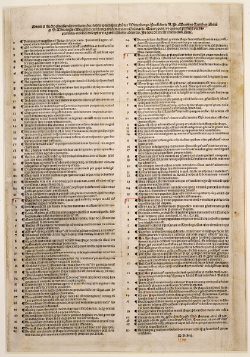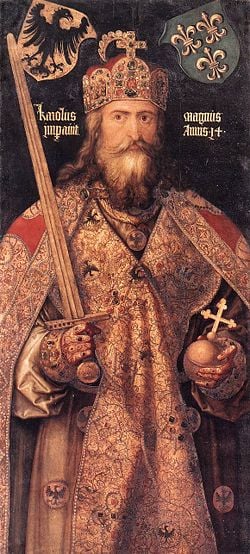Main Page
From New World Encyclopedia
New World Encyclopedia integrates facts with values. Written by certified experts.
Featured Article: Ninety-five Theses

The 1517 Nuremberg printing of Luther's Ninety-five Theses,
Popular Article: Charlemagne

Charlemagne, portrait by Albrecht Dürer
Did you know?
The Phoenicians are credited with spreading the Phoenician alphabet throughout the Mediterranean world, so that it became one of the most widely used writing systems (source: Phoenician Civilization)
Advertisement